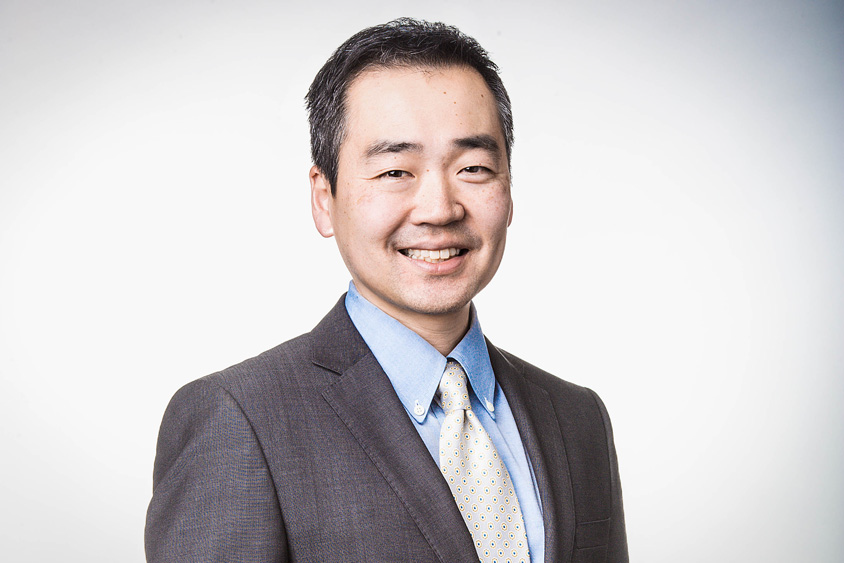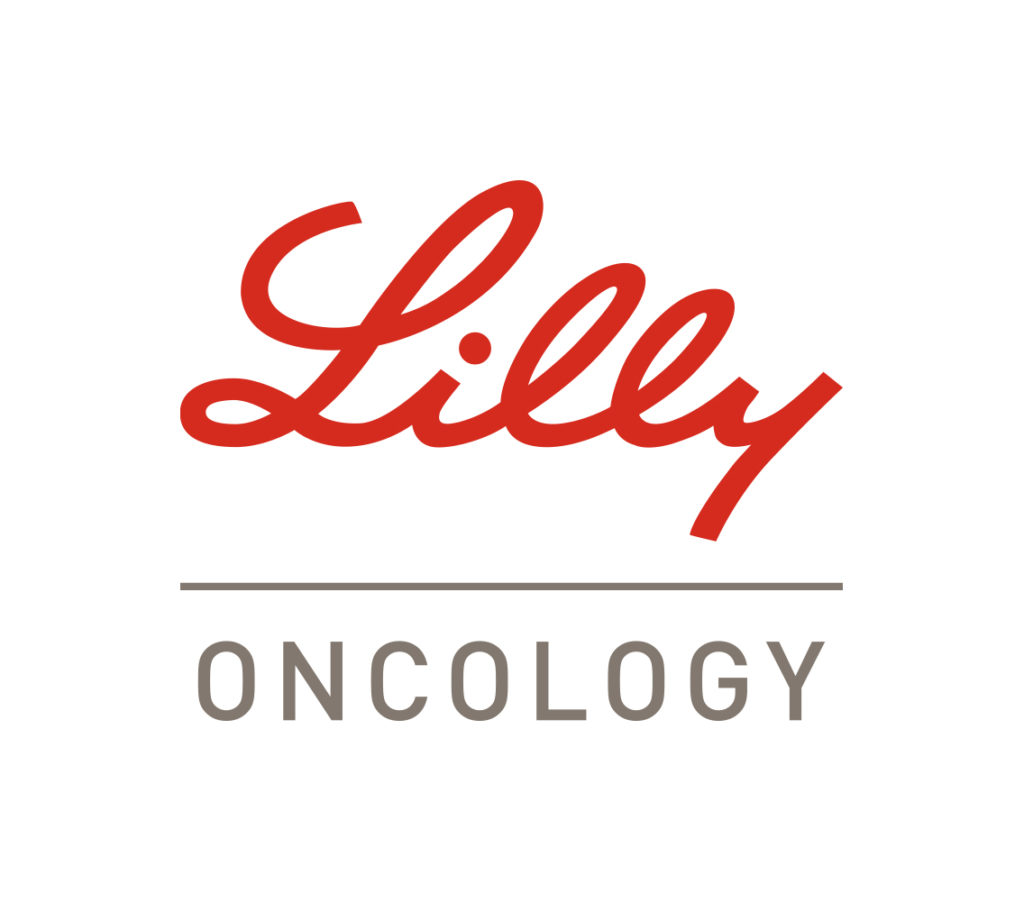This week on Real Pink we are hosting daily conversations about metastatic breast cancer (MBC) as part of National Breast Cancer Awareness Month. In the US alone, MBC is expected to kill 42,000 people. To turn MBC awareness into action, visit: https://mbc.komen.org/
Meet Dr. Park

Dr. Ben Ho Park, M.D., Ph.D. is the Donna S. Hall Chair in Breast Cancer, Co-Leader of the Breast Cancer Research Program, Associate Director for Translational Research and Director of Precision Oncology at VICC, and Professor of Medicine and Associate Director for Basic and Translational Research in the Department of Medicine’s Division of Hematology and Oncology at Vanderbilt University Medical Center. He also serves as the Interim Director of the Division of Hematology and Oncology at Vanderbilt University Medical Center and is a Komen Scholar. His research program focuses on identifying molecular targets for breast cancer, including circulating plasma tumor DNA, for use in liquid biopsy and as a biomarker for detecting residual disease.
Transcript
Adam (00:00):
On the show today, we have the pleasure of interviewing Dr. Ben Park. Ben, welcome to the show.
Dr. Park (00:06):
Thanks for having me, Adam.
Adam (00:07):
Well, I’m excited to talk with you and about the work that you’re doing. So let’s start off, tell us a little bit about yourself and your involvement in the breast cancer community.
Dr. Park (00:16):
So I’m a breast cancer physician-scientist, meaning I actually see patients still and I run a research lab and I run some other research kind of programs within the cancer center here at Vanderbilt university medical center. I am a passionate advocate researcher doctor about all things, breast cancer and I’ve really made it my life’s mission to help people with breast cancer and try to cure this disease. And I know that may sound locked into some people, but I figured someone’s got to do it and really wants us to move the needle forward when it comes to treating breast cancer patients.
Adam (00:51):
Oh, I love that. I love that. And I, and I agree. I mean, let’s treat it like it’s achievable and let’s passionately go after it. So, talk a little bit about your passion for your work with MBC. And how did you decide to just start doing research related to it?
Dr. Park (01:06):
When you think about what actually kills breast cancer patients, that’s metastatic breast cancer. And I think what we all recognize is that we tell patients that if you have early-stage disease, it’s curable. It’s not always curable, but the earlier stage, the higher, the likelihood of cure. And then if it doesn’t get here, that means it comes back as metastatic disease. And that’s where our goals of therapy really have shifted now to try to treat the disease. And in some cases, believe it or not, Adam, it is become what insulin has done for diabetes. We can’t cure it, but we can actually preach people. And more and more patients with metastatic disease are dying with their disease rather than from it. Wow. But we’d still like to cure it for obvious reasons. And so that really is the goal of my research lab and many research labs across the country is, is to find cures for every venture, with breast cancer. Wow.
Adam (01:56):
Yeah. I love that. And I’m glad that you made that analogy, that it’s kind of a can in some cases become like insulin. Because that’s, I think something that, that a lot of people really don’t fully understand. So I know this has been a big year for new MBC treatments that are approved. Can you talk about some of the recent advancements and are there more in the pipeline?
Dr. Park (02:15):
Yeah, there’s always more of the pipeline. You know, the first thing they do is take a half step back and recognize that breast cancer by itself as many different diseases. And so the old school way of three decades ago, treating it like it’s one disease has kind of fallen off the wayside. So when we think about breast cancer, we think about kind of three big buckets, one of which is what we call estrogen receptor-positive disease. These are the breast cancers that respond to hormone therapy. We’re tackling the estrogen receptor in those cancer cells. Another one is called [inaudible] positive disease, which is a different receptor called her too. And we had now for several decades, really effective therapies against her too so much so that what used to be the worst type of breast cancer or two positive disease has become the best. And there probably are, you know, the exception or the rule for curing metastatic disease are probably going to be in that subgroup because I’m convinced we do have some patients who are pure metastatic cartoon, positive breast cancer.
Dr. Park (03:12):
And then the last disease is what we call the so called triple-negative breast cancer. I failed to mention when we think about estrogen receptors, we call it really hormone receptor because it can either be estrogen or progesterone receptor-positive. And so those three receptors that bind the groups clinically currently. And so if you don’t have any of those, that’s what we call triple-negative breast cancer. And those up until this year really only had chemotherapy as a standard approved kind of bedded through clinical trials options. So getting to your question, what are the bigger splash news in treating metastatic triple-negative breast cancer has been a drug called or not it’s called [inaudible].
Dr. Park (03:51):
I can’t remember what his other name is now. I kind of remember “sock it to me,” but this is a, what we call an antibody or protein therapy that has like a linker to it and will destroy the cancer cells. And it recognizes us on a cell surface protein. I don’t want to get too into the weeds, but it recognizes a molecule that’s preferentially on these breast cancer cells. So that really is one of the newest kind of greatest therapies that we have for triple-negative breast cancers. Last year, we had immunotherapies for a subset of those triple-negative breast cancers. So we’ve made some progress from just five years ago when all we had was chemotherapy for that group in the metastatic setting. And now we have a couple of other options in terms of S for general hormone receptor, positive breast cancers.
Dr. Park (04:34):
We have all these drugs that we now call, but again, you don’t have to know the full name of the class of drug is called CDK four slash six inhibitors. Again, not important to know the names, but these are drugs that have really made a remarkable impact in metastatic disease. So much so that, you know, they’re extending the lives of breast cancer patients a lot longer than we ever had prior to that. And then in the space of her two positives, even though that’s now become a much more favorable prognostic kind of breast cancer. As I said earlier, there are still patients who are going to recur. And when they recur, they may blow through the first, second and third lines of drugs that we have for them, even though they’re highly effective drugs. So there are now two drugs that were just approved this year to address that one of them is a drug.
Dr. Park (05:24):
Again, I don’t know who comes up with these names and hurts you, but this is a drug that’s another antibody-based therapy, but it has chemo linked to it. So it’s kind of a smart bomb with directly to the, her two positive breast cancer cells. And another one is a pill that will actually for the first time was tested in a real rigorous matter to see whether or not I could effectively treat patients who had brain metastasis from birth to positive breast cancer. That’s kind of become an unmet need as we’ve pushed the needle forward with all of our new therapies, but most of them are what we call antibodies or proteins. And so those don’t cross into the brain. And so the brain becomes a sanctuary. So, so we used to never see this one hurts you. Positive disease was a bad actor. Now with these antibody therapies, patients are doing really well and they’re living longer, but if they happen to have a breast cancer cell in their brain, that didn’t get touched because the antibodies don’t cross there that has become the new unmet need.
Dr. Park (06:20):
And so this is one of the first problems that we addressed that with a pill that can go into the brain and showed pretty decent effectiveness. So now we even have an option for brain metastatic disease and the, her two positive space. These are some examples or even more. And so when you really think about how do we get there, it’s always about research first, understand what makes breast cancers, breast cancer, what makes them tick so to speak, and we have to then figure out how do we exploit that knowledge for therapeutic vulnerabilities, as we say, and develop drugs towards that.
Adam (06:52):
Yeah, obviously the therapies are really developing quickly in your mind. What’s the biggest current hurdle to developing new MBC therapies.
Dr. Park (07:02):
So I wear both a clinical hat and a laboratory research hat, and I will tell you they’re different for both. I think in the research realm, I’m going to take that back. It’s really just lack of money for both, because in the research realm, we need more money to push forward new research, put forward new ideas and innovative ways to think about breast cancer in terms of how we study it and approach it from a therapeutic angle. And from the clinical standpoint, it just costs a boatload of money to do clinical research, you know, regulatory things. You have to worry about people infrastructure. So it really is one thing. And it’s, it’s always about funding and money and, you know, that’s what Komen does. And the metastatic breast cancer Alliance does to get together as their advocacy groups, as well as foundations and philanthropic support to try to bridge that gap, where funding from the NCI has always been really tight for the entirety of my career. And it hasn’t gotten any better. And I think without those types of philanthropic and foundational supports and, and advocacy, there’s no way we would be where we are today in terms of our breast cancer therapies.
Adam (08:10):
Yeah. Yeah. That’s, I mean, that’s, that’s why we’re doing what we’re doing. That’s why we’re talking about it. Yeah. That’s great. Putting on your, your lab hat, I guess your lab coat is there anything happening in the lab now that you think will be a game-changer for MBC patients 10 years from now?
Dr. Park (08:27):
Yeah. You know, there’s a lot going on in the lab right now. Do you mean mine specifically or just in general, whatever one you’re excited about or I’m a little bit biased to our studies. One of the things that we’ve been really a champion of and started initial work in about 10 years ago is this concept of what we call liquid biopsy and what this means is, and it’s different for different people. Some people view liquid biopsy, meaning that you can draw a tube of blood from cancer and pluck out cancer cells. And there’s great research behind that and utility, there are some limitations to every liquid biopsy included what I’m going to describe, but that’s still something that people are very interested investing in. What we did many years ago now was to look and see if we could actually pull out what we call three floating or cell-free tumor DNA.
Dr. Park (09:18):
And so it’s been well-recognized now for decades, that all of the cells in our body shed naked free-floating DNA into the bloodstream. We don’t know why this occurs and it’s functional. I personally just think it’s cellular waste or cellular poop. And then it just gets extruded out into the urine. But cancer is a disease of DNA gone bad, and there are mistakes, what we call mutations there. So there’ll be Achilles heel because we can target those mistakes sometimes with drugs. But they’re also good for diagnostic purposes because they stick out like a sore thumb from the rest of the normal cellular. So that’s the premise of what we’re doing. But the challenge is, even though we’ve known about this for decades, technology didn’t exist that we could pull out just the cancer DNA molecules and say, Oh, you’ve got cancer and I can see it now in your blood.
Dr. Park (10:08):
Right. We now have technology to do that. And that’s where the field is moving. Now, how do we incorporate this into our clinical decision making? As an example, we’re going to start a trial. We’re going to look to see if we can measure tumor DNA in the blood, whether it’s going up or down and response to therapy, currently what we do for metastatic disease. So we take our best guests and we may wait three months later and see by a cat scan, whether our best guests worked, because it takes that long to see. But wouldn’t it be great if you could take a blood test a week or two later after starting your new chemotherapy or new Hartford therapy or whatever, and then say, Hey, it’s not working. Let’s change therapy now not wait three months for now, but it’s just going to get bigger. And so that’s kind of one way that we’re thinking about using these tests and in the lab that were developed and all that, and now commercialized by many to see if we can actually afford a better outcome for patients,
Adam (11:01):
Man, that sounds amazing. I mean, that is some, some stuff to be really, really excited about. So then kind of, where do you think we’ll see the most advancement in MBC therapy over the next 10 years? I guess what I mean by that is like, in terms of like brain metastasis or longs or liver, like
Dr. Park (11:17):
You think we’ll see the most improvements over the next 10 years. Oh, geez. You know, I got to tell you, I think it’s gonna be all of the above because no one area of breast cancer that I think is more deserving than the other. I think we all view breast cancer as a disease or many diseases that we still have to cure it. And so when you think about what I was saying earlier, we don’t really have cures for the vast, vast majority of metastatic breast cancer patients. Then we have to figure out, roll up our sleeves and figure out cures for all of them. So just in the past two to three years, I gave you some of those examples for vulnerable receptor positive disease. We have the CDK four, six, and the other sport, triple negative disease. We have immunotherapy now and Socrates and for her two positive cause we have two more drugs that just got approved. I think that is still going to happen when we’re going to push the envelope on all fronts because we have to there’s really no doubt in my mind that we have to cure all those kids. There’s not just one.
Adam (12:17):
Hmm. That’s fair. That’s fair. So then this has been amazing. Last question for individuals living with MBC. Is there any advice that you can give them or any hope that you can share with them?
Dr. Park (12:29):
Yeah. I still think because of the curable nature of most MBC, what I advocate for is always getting a second and maybe third opinion because nowadays, and this is one of my big efforts and what got me here. I was telling you earlier. And one of the reasons I got here, precision oncology is something I’m directing here at our Vanderbilt Ingram cancer center. And by that, I mean that we can take these liquid biopsies. We can also take tumor tissue biopsies from the cancer itself. We can even take DNA from normal cells because now we know, for example, he brought the one or BRCA two gene like Andrew Jolene does. If you have cancer, you can get special pills that will affect positive therapeutic changes just for those types of cancers right now. So the field is changing fast. What hasn’t changed fast enough is getting that information on here. So get a second or third opinion, get your tumor biopsied. If you have metastatic disease, let’s take a look under the hood and see if we have really effective drugs against once what’s in there.
Adam (13:26):
Hmm. I love that. That’s some great advice. Well then this has been great. Thank you for breaking this down in a way that made it easy to understand and for shedding some light on all the amazing research that’s happening around MBC.
Dr. Park (13:39):
Thank you so much, Adam. It’s a pleasure.
Sponsors

The More for MBC Facebook page is a Lilly-owned page that aims to provide people living with metastatic breast cancer a platform to engage.

Merck invents for life – our mission is to deliver innovations that extend and improve the lives of people with cancer.
About This Episode
Intro and outro music is Into Thy Heart – Instrumental by Ivan Chew.
